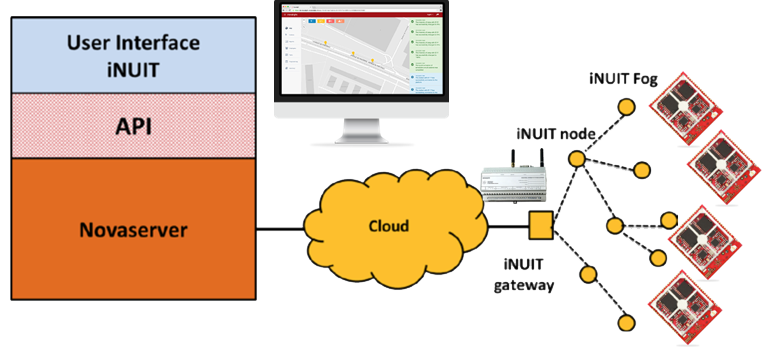The availability of low-cost sensors covering a whole city offers new perspectives in terms of research and development. Urban Pulse aims at offering an integrated solution allowing capture, storage and processing of urban signals to the iNUIT program and HES-SO researchers.

The project is a partnership between two institutes of applied research: iCoSys at HES-SO//Fribourg and IICT at HES-SO//Vaud. iCoSys brings skills in cloud architectures and Big Data processing and analytics, while HEIG-VD leverages its experience in sensor integration and IoT communication technologies. Novaccess SA is also a private partner in the project, offering access to their IoT communication platform.
The first objective of the project is to set up a low-cost IoT platform, where new sensors can be easily connected. The platform will rely on standards and best practices in the field and will be compatible with Novaccess communication technologies. An innovation is in the local aggregations of data needed to avoid saturating the networks. This platform will be reusable by iNUIT researchers. A second objective is to exploit this platform in the context of road traffic counting and discrimination, an important aspect of city management and urban planning.
In addition to providing a new research platform to the iNUIT ecosystem, the project may lead to other valorizations such as new projects, for example through CTI. The project will also increase the visibility of the HES-SO institutes in the context of potential future participation in H2020 smart city projects.

